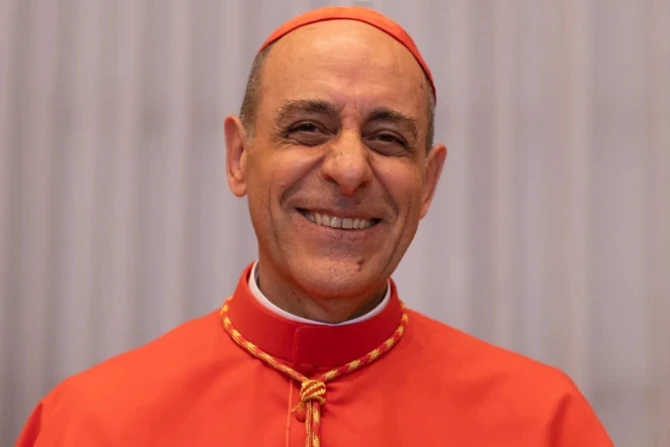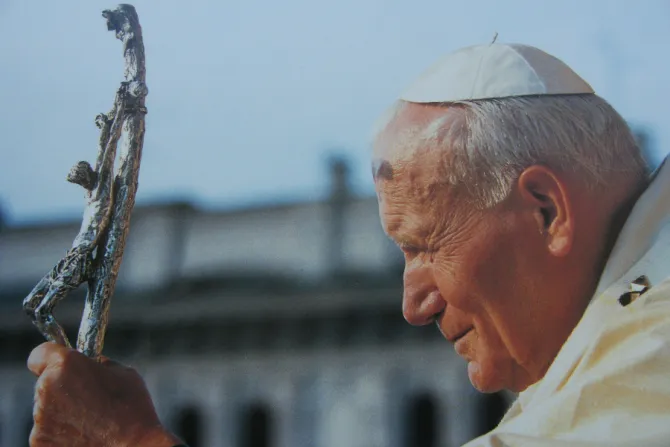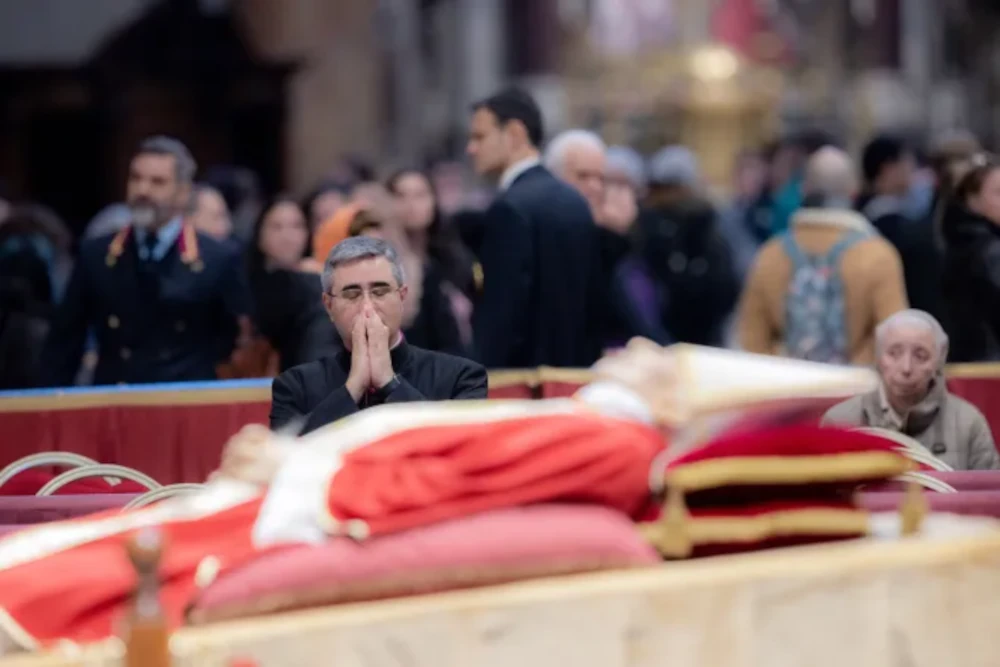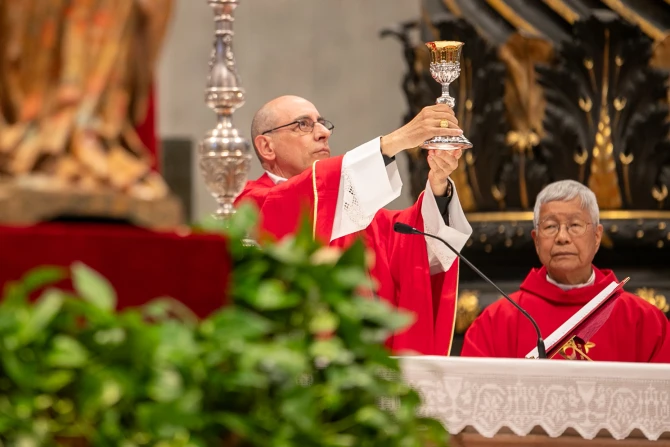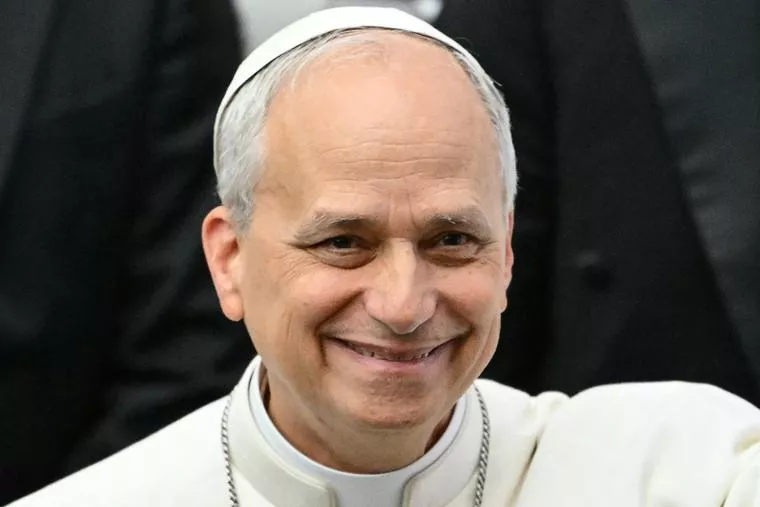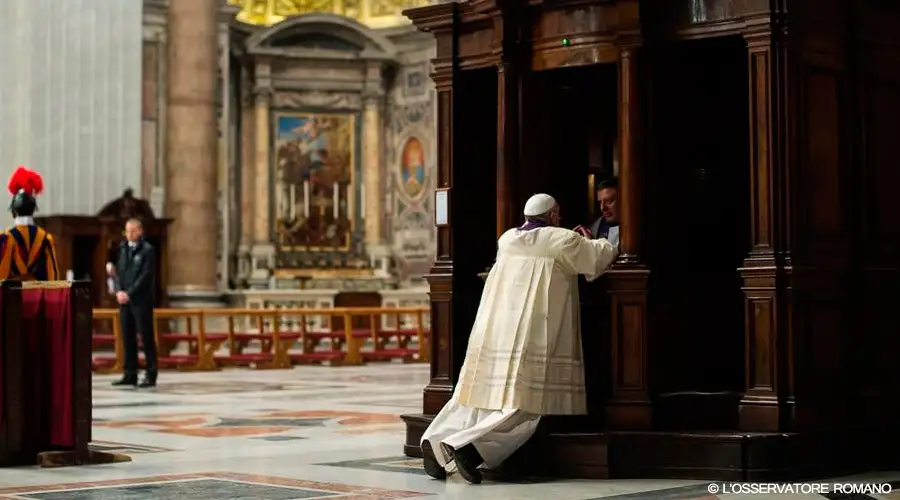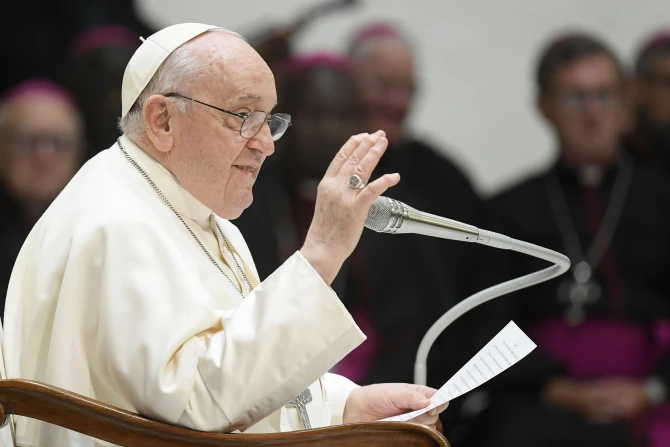Cardinal Víctor Fernández on Monday reaffirmed Pope Francis’ position against women’s access to the diaconate, an issue that will continue to be evaluated by a specialized commission while the Synod on Synodality continues to reflect on the role of women in the Church outside of ordained ministry.
During his speech at the general congregation on Oct. 21, the prefect of the Dicastery for the Doctrine of the Faith recalled that for the Holy Father the question of the female diaconate “is not ripe,” and for this reason he specifically asked the members of the synod not to get sidetracked on this possibility now.
However, the cardinal indicated that those who “are convinced that it is necessary to go deeper” into this question can send their considerations to the commission established by the Holy Father in 2020 to further study the subject. The commission is chaired by Cardinal Giuseppe Petrocchi.
In a similar way to what he said at the beginning of the synod, Fernández emphasized that “rushing to ask for the ordination of deaconesses is not today the most important response to promote women.”
However, he underscored that the pontiff “is very concerned” about the role of women in the Church and therefore called for further reflection “without concentrating on holy orders.”
Other forms of women’s participation in the Church
Fernández referred once again to the reflections led by group 5, charged during the synod with exploring, among other things, “the question of the necessary participation of women in the life and leadership of the Church.”
He pointed out that this group has analyzed different forms such as the lay ministry of catechists in communities without priests, an option that emerged after Querida Amazonia and was not widely accepted.
The prelate recalled that Pope Francis has pointed out that priestly power, linked to the sacraments, “is not necessarily expressed as power or authority, and that there are forms of authority that do not require holy orders.”
Continuing his reflection, he renewed his invitation to send to the dicastery “testimonies of women who are truly community leaders or who perform important functions of authority.”
“I ask especially the women members of this synod to help collect, explain, and send to the dicastery various proposals, which we can hear in their context, on possible paths for the participation of women in the leadership of the Church,” he added.
Likewise, after the “misunderstanding” that was caused by his absence from a meeting of synod delegates in which they interacted with the Vatican study group on this issue, the cardinal confirmed that there will be a new meeting on Thursday, Oct. 24, at 4:30 p.m. local time where he will listen to ideas and proposals.
He also expressed his hope that concrete steps can be taken to understand that “there is nothing in the nature of women that prevents them from occupying very important positions in the guidance of the Churches. What truly comes from the Holy Spirit cannot be stopped.”
Draft of final document already in hands of synod members
Paolo Ruffini, secretary-general of the General Secretariat of the Synod, reported during today’s press conference that the draft of the final document was delivered this morning to the members of the synod.
The document, which will be presented to Pope Francis, is being prepared by a commission made up of a president, three secretaries, seven members representing each continent, and three members appointed by the pope.
Present at the briefing at the Holy See Press Office, cardinal-designate Father Timothy Radcliffe, OP, urged against seeking “headlines” in this document, as he “this would be a mistake.” He also noted that “the synod is a profound renewal of the Church” and a “new way” of imagining it.
For her part, Sister Nathalie Becquart, undersecretary of the General Secretariat of the Synod, stated that the synod also represents a “new way of articulating the primacy” of the Petrine ministry.
This story was first published by ACI Prensa, CNA’s Spanish-language news partner. It has been translated and adapted by CNA.

